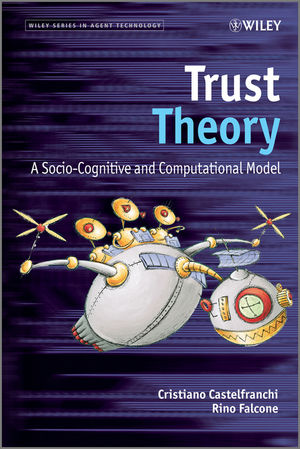Trust Theory: A Socio-Cognitive and Computational ModelISBN: 978-0-470-02875-9
Hardcover
386 pages
May 2010
 |
||||||
This book gives an accessible explanation of the importance of trust in human interaction and, in general, in autonomous cognitive agents including autonomous technologies. The authors explain the concepts of trust, and describe a principled, general theory of trust grounded on cognitive, cultural, institutional, technical, and normative solutions. This provides a strong base for the author’s discussion of role of trust in agent-based systems supporting human-computer interaction and distributed and virtual organizations or markets (multi-agent systems).
Key Features:
- Provides an accessible introduction to trust, and its importance and applications in agent-based systems
- Proposes a principled, general theory of trust grounding on cognitive, cultural, institutional, technical, and normative solutions.
- Offers a clear, intuitive approach, and systematic integration of relevant issues
- Explains the dynamics of trust, and the relationship between trust and security
- Offers operational definitions and models directly applicable both in technical and experimental domains
- Includes a critical examination of trust models in economics, philosophy, psychology, sociology, and AI
This book will be a valuable reference for researchers and advanced students focused on information and communication technologies (computer science, artificial intelligence, organizational sciences, and knowledge management etc.), as well as Web-site and robotics designers, and for scholars working on human, social, and cultural aspects of technology. Professionals of ecommerce systems and peer-to-peer systems will also find this text of interest.



